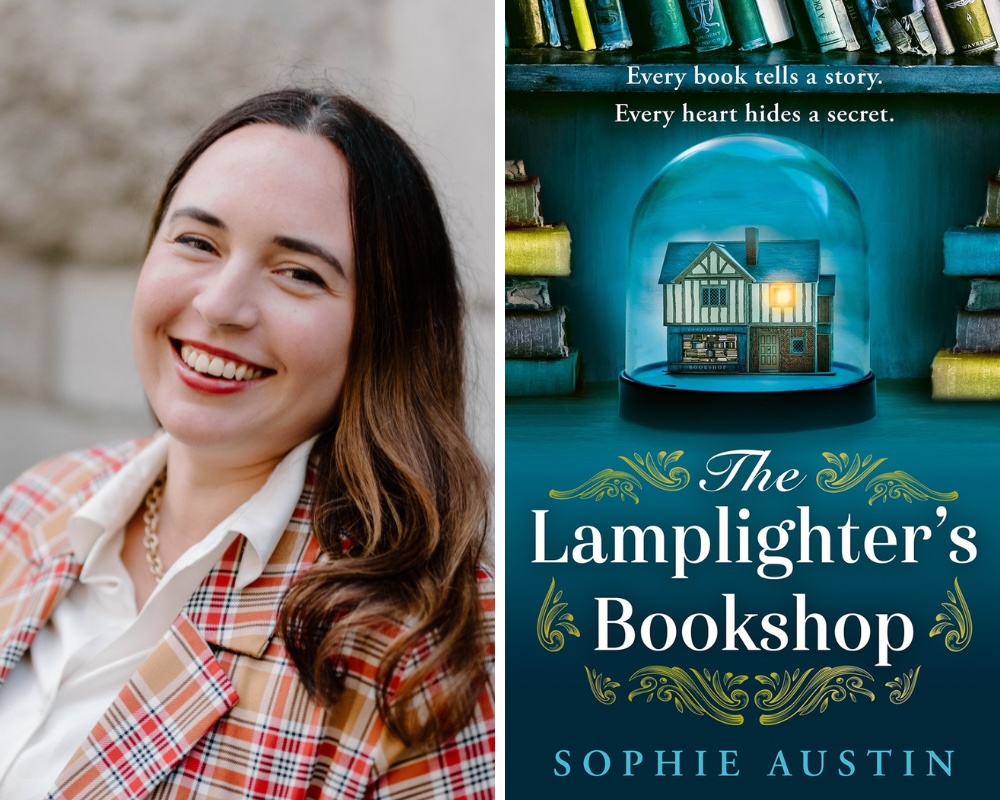Sophie Austin: Victorian Fiction Is More Relevant Than Ever

I’m yet to meet a person that hasn’t read, watched, or at least heard of Jane Eyre – despite the fact the book is over 170 years old. While gas lamps, telegrams and monocles might’ve gone out of fashion, Victorian fiction seems timeless, and our obsession with it isn’t slowing down anytime soon. But what is it about this period of time that we can’t resist reading (or in my case, writing) about?
A mirror to the modern age
Victorian literature is still so relevant for us today because we’re still tackling some of the challenges the Victorians were facing. There is little difference between me, an author, staring down the barrel of generative AI models poised to write books; and a Victorian who made her living hand stitching looking at the quiet ferocity of sewing machines. Victorian novels touch on many of the topics our modern society still wrestles with – class divisions and conflicts, gender roles and societal norms, and even questions about ethics and morality. I think that mirror is what keeps Victorian literature relevant, but it’s the conflict that was baked into every layer of Victorian society that makes fiction from and about that time period so irresistible.
The comfort of slow-burn romance
It’s just as tantalising today to watch Rochester slowly realise his love for Jane Eyre as it was almost two hundred years ago. Love hasn’t changed throughout the centuries – but the language of it has. Today we might send a text to let someone know we’re thinking of them – but in Victorian times love was written in longing glances, and stolen moments beside the fireplace. Authors like Elizabeth Gaskell and Thomas Hardy were masters of building that tension, which is so fundamental to fantastic fiction. In today’s world of dating apps, ghosting, and situationships there’s something comforting about the slow-burn of Victorian romance and how much can be said with just one, lingering look.
Riskier business
The rigidity of Victorian society also raised the stakes when it came to choosing the wrong suitor. Nowadays we can just keep swiping, but in Victorian times falling for the wrong person could be ruinous. The threat of scandal was an ever-present shadow, and choosing the wrong suitor could damage a woman’s reputation, and put her at risk of alienation. It’s those high stakes that make for compelling fiction – be it Victorian or Regency – and why we all still gasp when Lydia runs off with Wickham in Pride & Prejudice. The scoundrel!
Timeless struggles
The Lamplighter’s Bookshop (my debut historical romance novel) is set in 1899 – when Victorian society was teetering on the cusp of modernity. I wanted the book to take place at a time when the conflict between old traditions and new inventions was reaching its peak – and mirror that in the conflict experienced by its characters. Evelyn, the main character, is fighting against societal norms not just because she’s a woman, but because of the class she was born into. Throughout the novel she struggles to balance society’s expectations of her and her own desires for her future. Likewise William, a young writer with secrets of his own, is caught between the life he so desperately wants and the realities of the one he has – a life that makes him utterly unsuitable to love a woman like Evelyn.
Duty and desire are thematic behemoths of Victorian fiction – but this struggle is just as relevant now as it was then. Look at modern characters like Daisy Jones from Daisy Jones & The Six, or Jude St. Francis from A Little Life and we see that though the Victorians might’ve had a different set of external pressures, the struggle between what’s expected of us and what we want – what our hearts want – transcends the time in which it was written.
We may not know what courtship will look like in the next years, decades, or centuries. But as long as there are human connections, we will continue to be captivated by deep emotions, rich storytelling, and social critique. The outfits change, the technology evolves, and the landscapes shift, but the core themes of Victorian literature are here to stay. Reader, I promise you.
The Lamplighter’s Bookshop by Sophie Austin is published by HarperCollins on 13 March 2025


